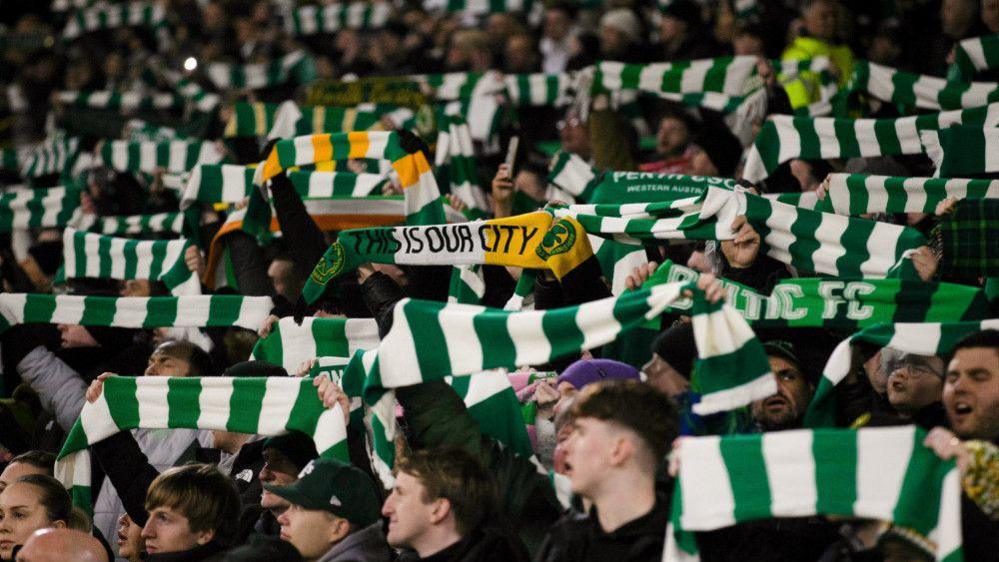SPORTS INFO DASH
Sports Info Dash is your all-in-one hub for real-time sports updates, live scores, in-depth match stats, player profiles, and breaking news across football, basketball, tennis, and more. Stay ahead with the latest in global sports action.
How Celtic Dominated Scottish Football: A Blueprint for Success
Sports Info Dash

Celtic have commanded Scottish football for over a decade, becoming the standard for consistent excellence on and off the pitch. But what exactly lies behind their enduring dominance? This article reveals the key strategies, leadership choices, and business models that have powered Celtic's remarkable era.
The Foundations of Celtic's Success
Celtic’s modern golden age began in 2012, a turning point following rival Rangers' financial collapse. Yet, Celtic’s sustained supremacy isn’t simply the result of their rivals’ misfortunes. In fact, their ascent is rooted in meticulous planning and vision. According to BBC Sport's in-depth analysis, Celtic has claimed 13 league titles in 14 seasons and maintained management stability, with just four managers during this period. This consistency has allowed a strong culture to thrive.
Stability doesn’t end with coaching. Club leadership, especially majority shareholder Dermot Desmond, has provided steady guidance, creating an environment for coaches and players to excel.
Winning on and off the Pitch
Managerial quality has played a major role. Brendan Rodgers, for example, has added polish and ambition to Celtic’s domestic and European campaigns. His direct relationship with boardroom leadership, bypassing traditional structures, has given him unique authority. Learn more about Rodgers' influence in The Guardian's coverage of his ambitious approach.
On the field, players like Daizen Maeda and Nicolas Kuhn have excelled, forging partnerships that deliver silverware. Kuhn recently surpassed 20 goals in a single season, reflecting Celtic’s knack for developing young talent. As reported by Sports Illustrated, Kuhn’s journey shows how effective recruitment and player support can power individual and collective triumph.
The Celtic Business Model: Prudence and Profit
Celtic’s financial success is just as impressive. The club relies on a robust player trading system—prioritizing the recruitment and sale of young players—and strong performances in European competition. Since 2011, the team has achieved a net profit in player transfers and leveraged Champions League exposure to boost revenues. Participation in the Champions League is vital, offering not just financial rewards but also international prestige and greater sponsorship opportunities.
Unlike rivals trapped in cycles of debt, Celtic have achieved long-term profitability. They have posted profits in 12 of the past 14 seasons, only slipping into the red during exceptional circumstances.
The Impact and the Road Ahead
Celtic’s dominance has created new benchmarks for the Scottish Premiership, but some argue it threatens the competitiveness of the league. Nonetheless, their business and football blueprint is the envy of many clubs in Scotland and beyond. With the potential for new challengers and external investment at other clubs, the future may hold fresh battles. But for now, Celtic remains the role model for sporting and financial success.
Conclusion: Lessons from the Celtic Model
Celtic’s reign stands on stability, clever management, and prudent financial choices. Their blend of domestic consistency and European ambition propels them forward. Clubs seeking to emulate their achievements should look closely at the Parkhead blueprint. As Celtic look to the future, their focus on evolving—while sticking to proven principles—should keep them at the summit of Scottish football for seasons to come.
For comprehensive coverage and further reading on Celtic's approach and ongoing success, explore the original articles on BBC Sport, The Guardian, and SI.com.